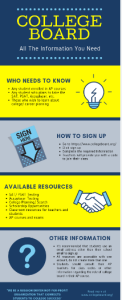
The College Board is a cornerstone institution in the American education system, best known for administering standardized tests like the SAT, Advanced Placement (AP) exams, and PSAT/NMSQT. As students navigate the path to college, the College Board plays a crucial role in shaping academic readiness and college admissions. In this comprehensive guide, we’ll explore the history, purpose, programs, and impact of the College Board on students, parents, and educators.
What is the College Board?
The College Board is a nonprofit organization founded in 1900 to expand access to higher education. It creates and manages programs that help students prepare for, apply to, and succeed in college. Though most well-known for the SAT, the College Board’s reach extends far beyond standardized testing. Its mission is to connect students to college success and opportunity.
As of today, the College Board serves over 7 million students annually, working with more than 6,000 schools, colleges, and universities globally.
A Brief History of the College Board
Originally called the College Entrance Examination Board (CEEB), the College Board was established by a group of universities and colleges who wanted to create a standardized admissions process. The SAT (Scholastic Aptitude Test) was first administered in 1926 and has since become a central part of college admissions in the United States.
Over the decades, the organization expanded its offerings to include:
- The PSAT/NMSQT (Preliminary SAT/National Merit Scholarship Qualifying Test)
- The Advanced Placement (AP) program
- College planning tools and resources
- Financial aid programs like CSS Profile
Core Programs of the College Board
1. SAT
The SAT is a standardized test used by many colleges for admissions. It assesses students in three core areas: Reading, Writing and Language, and Math. Some versions also included an optional Essay section (phased out in 2021).
- Why it’s important: Many colleges use SAT scores to evaluate academic readiness.
- Score range: 400 to 1600
- When to take it: Usually in 11th or 12th grade
2. PSAT/NMSQT
The PSAT is a preparatory version of the SAT and also serves as the qualifying test for the National Merit Scholarship Program.
- When to take it: Primarily in 10th or 11th grade
- Benefits: Practice for the SAT and eligibility for scholarships
3. Advanced Placement (AP)
The AP program allows high school students to take college-level courses and exams. Scoring well on AP exams (typically a score of 3 or higher) can earn students college credit or advanced placement at many universities.
- Subjects offered: Over 30 subjects, including AP Calculus, AP Biology, AP U.S. History, and AP English Literature
- Benefits: College credit, GPA boost, and academic challenge
4. CSS Profile
The CSS Profile is a financial aid application administered by the College Board. Unlike the FAFSA, which is government-run, the CSS Profile is used by many private colleges to determine eligibility for non-federal aid.
- Cost: Fees may apply, though waivers are available
- Use: Provides a more detailed picture of a family’s finances
College Board’s Digital Transition
In recent years, the College Board has moved toward digital testing. The SAT, for example, has transitioned to a digital format starting in 2024. This shift aims to make testing more accessible, secure, and efficient.
Key benefits of digital SAT:
- Shorter testing time (approximately 2 hours instead of 3)
- Faster score delivery
- More flexible scheduling
College Board and College Planning
Beyond testing, the College Board offers tools to help students explore and apply to colleges. Some of these include:
- BigFuture: A comprehensive college planning website
- College Search Tool: Helps students find colleges based on preferences
- Scholarship Search: Matches students with financial aid opportunities
- Career Finder: Helps students explore career paths based on interests
These resources are designed to promote equity and access, especially for first-generation and low-income students.
Criticism and Controversy
Despite its impact, the College Board has faced criticism over the years. Common concerns include:
- High costs of tests and score reports
- Test anxiety and pressure on students
- Questions about fairness and equity, particularly regarding access to test prep resources
- The for-profit-like behavior of a nonprofit organization
In response, the College Board has made several reforms, such as:
- Eliminating SAT Subject Tests and the optional essay
- Offering free test prep through partnerships (e.g., Khan Academy)
- Waiving fees for students with financial need
The Future of the College Board
As colleges move toward test-optional policies, especially after the COVID-19 pandemic, the College Board has had to reimagine its role. While the SAT and AP programs are still widely used, many institutions are placing less emphasis on standardized tests.
Even so, the College Board remains influential in college readiness and admissions. It is likely to focus more on personalized learning, digital tools, and college access initiatives in the coming years.
Why the College Board Still Matters
Even with growing skepticism toward standardized testing, the College Board plays a vital role in:
- Promoting academic standards
- Providing a pathway for college credit
- Supporting students with planning and financial aid
- Maintaining a national benchmark for college readiness
For many students—especially those from underrepresented communities—the College Board’s services can provide opportunities that might otherwise be out of reach.
Conclusion
The College Board is more than just the SAT. It’s a powerful institution that helps millions of students pursue higher education each year. From AP courses to financial aid applications, its tools and resources are deeply woven into the fabric of the college admissions process.
As education evolves, so too does the College Board. Whether you’re a student preparing for exams, a parent supporting your child’s academic journey, or an educator navigating college prep, understanding the College Board and its programs is essential.